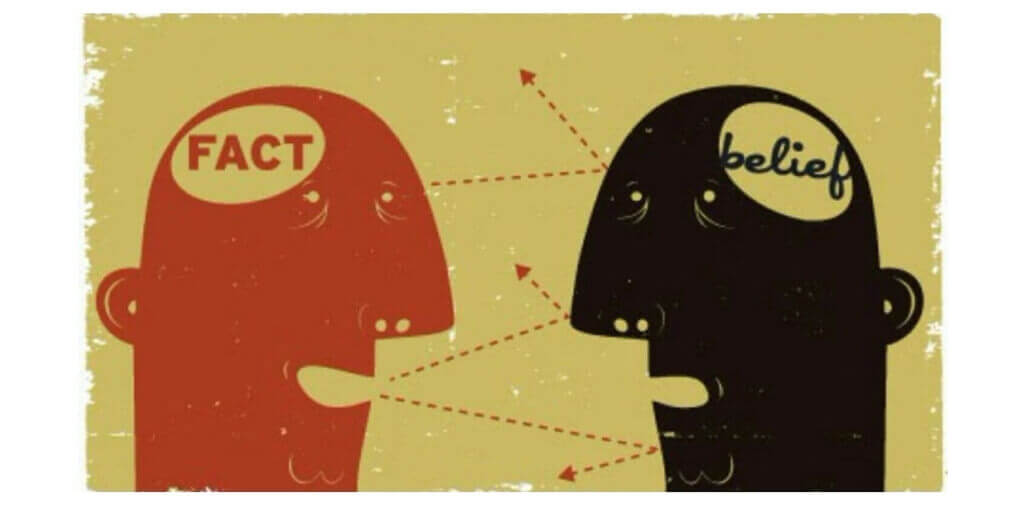It awes me how it’s possible that when two people with contradicting opinions are presented the exact same scientific report they both walk away stating it substantiates their believes on the subject.
NB: This is an article from Get Into MoRe
You often see this during discussions on climate change for example. The answer lays in cognitive biases.
A cognitive bias is a systematic error in thinking that limits our ability of thinking divergently and can lead to irrational decisions and pour judgement which can be dangerous for business. It’s caused by the complexity of the world and amount of information we are presented with versus the limits of our attention span and ability to process information. We therefor rely on mental shortcuts that allow us to act quickly. These rules of thumb are often right, but somethings inaccurate as they are driven by individual motivations, prior experience, emotions and personal limits.
Most experts believe cognitive biases date from times where evolution favored the ones who started running when they heard something rumbling in the bushes over the ones who stayed long enough to investigate whether it was a vicious tiger or harmless prehistorical cat.
We all suffer from cognitive biases as they are inherent to being human. If I am really honest I have to admit that fact checking and comparing different media sources isn’t what brought me to believe the Belgian Red Devils will win the World Cup 2018.
There are a variety of cognitive biases that can affect business in your hotel. Here are a few:
The attentional bias: the tendency to pay great attention to some things while simultaneously ignoring others. You throw a party because conversion is much higher than last year but ignore the size of events has shrunk. We all like parties but maybe you should have postponed this one?
The anchoring bias: the tendency to rely too heavily on the first piece of information you learn. This is why in negotiations the first person to say a number sets the bar for what is a reasonable amount to discuss simply by being the first.
The confirmation bias:This happens when people favor information that confirms their believes. Since you believe leisure groups always ask low rates you remember strongly when you have another request for low rates. This might lead you to underprice leisure groups that were willing to pay a higher rate in the future.
The status-quo bias: This is the habit of favoring the current situation and maintaining it due to loss aversion and do nothing as a result. A good warning sign for this bias is when you hear someone talk about “The way we do things around here”. This can slow down innovation dangerously.
The framing bias: a person will process the same information differently depending on how it is presented. Remember this one the next time you are offered a discount. You might believe 350€ for a certain service is over budget but feel different about a service that was 420€ with a special 20% discount just for you.
The conservatism bias: people favor prior evidence over new evidence or info that has emerged. If in your hotel Tuesday and Wednesday are historically the busy days with higher rates you might just keep pricing this way even though it could be demand has shifted to Tuesday, Wednesday and Thursday which you wouldn’t know since you didn’t investigate.
Everyone experiences cognitive biases, but you can minimize the effect they will have on your hotel. The best way to avoid cognitive biases is to be aware of their existence and take measures. Usually it’s easier to spot these biases in others than in yourself. When you understand these thinking errors you are far more likely to spot them and rationalize. When making business decisions don’t trust gut feelings to much but fact check with real time data.
A cloud-based business intelligence tool helps you filter out cognitive biases in the Meeting & Events Sales department. Using a tool like this, Sales teams have all information they need at their fingertips to make data driven and rational decisions. Going from the Dashboard where all KPI’s are presented at a glance to a Demand Calendar showing you exactly where the hot dates are. Everything is there without you having to lift a finger.





